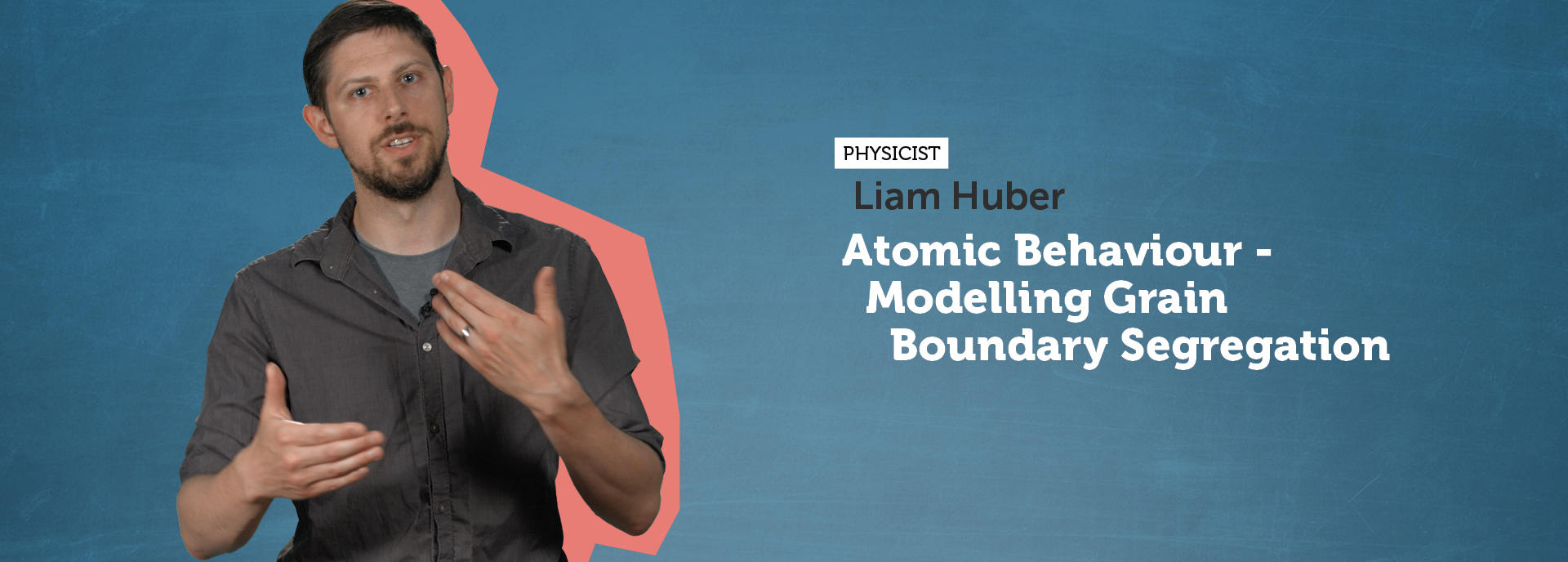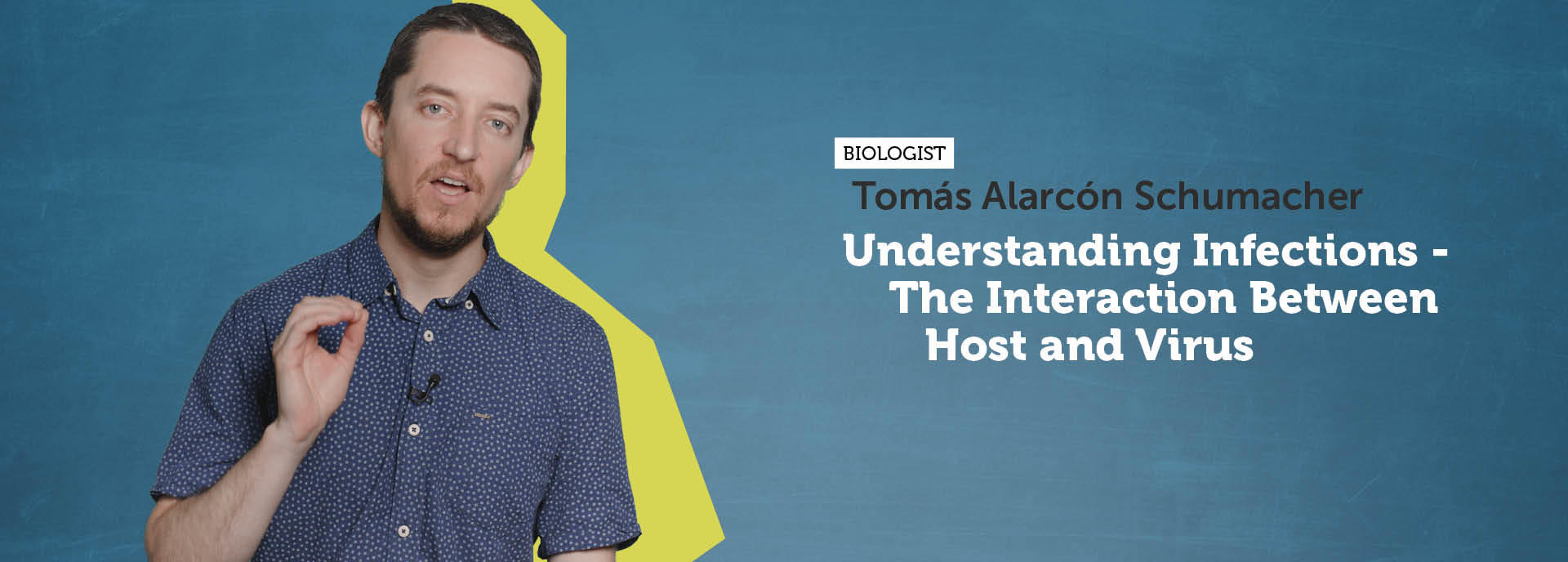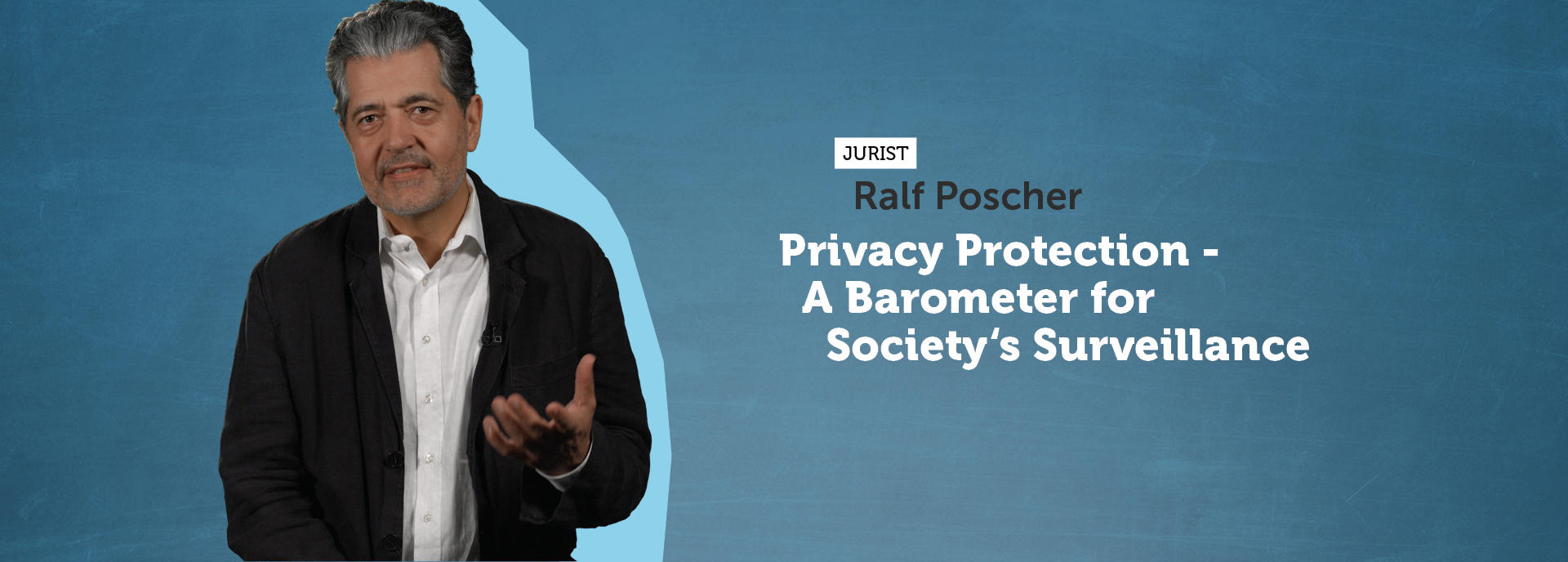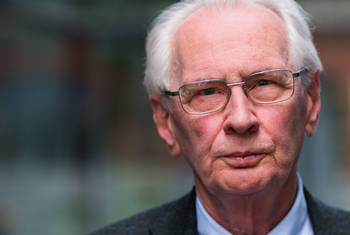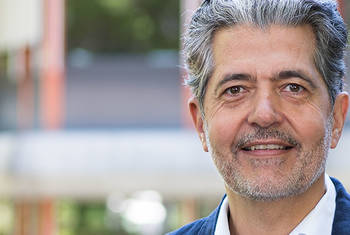When one comes before a court, how can the chances of success be assessed? In this video, CHRISTOPH ENGEL considers the impact of the makeup of the German Constitutional Court (in terms of the panel of justices presiding) on a plaintiff’s prospects. Focusing on the effect of the justices’ familiarity with one another both before and after recompositions of the court, Engel identifies a positive relationship between [...] Watch video
The importance of the human right to work is recognized by its inclusion in the Universal Declaration of Human Rights. In this video, NICOLAS BUENO proposes that we reflect on its necessity and reimagine it as something more ambitious, as a new human right to freedom from work. Analyzing the historical context in which labor and fundamental economic rights emerged, Bueno observes that they were conceived to protect not [...] Watch video
There is no global regulation, let alone any hard-law treaties, that deal with the interactions between humans and animals even though these have been globalized in many areas, such as for food, agriculture, or the procurement of pets. This is why ANNE PETERS has initiated a research program on Global Legal Animal Studies as she explains in this video. Analyzing international law and comparing domestic laws, she has [...] Watch video
The European Union does not have sufficient legitimacy and is not well accepted by its citizens which leads to a negative impact on the process of European integration. DIETER GRIMM identifies three sources of this problem. First of all, the way the European Parliament, the democratic body, is elected and works is too far from the citizens. Second, the principle of subsidiarity is applied differently in every member state [...] Watch video
When a person dies leaving property behind, the law of succession determines what happens to it. In this video, JAN SCHMIDT explores how the desired distribution of assets is actually implemented when an estate is liquidated. Analyzing how the law of succession has developed through history and internationally, Schmidt shows that though questions of succession are extremely complex, there are shared fundamental issues [...] Watch video
What Can We Learn From the Fully Virtual Shareholder Meetings That Have Taken Place During the Corona Pandemic?
The Corona pandemic made it impossible to hold general shareholder meetings in the traditional manner. In this video, ELENA DUBOVITSKAYA explores how German corporate law responded to this dilemma through what she refers to as The Covid Act. Out of necessity, the act bypassed the shareholder’s heretofore irrevocable right to be physically present at the general meeting. Dubovitskaya examines the extent to which the [...] Watch video
The research presented in this video deals with the understanding of contracts and contract law. As MARKUS REHBERG explains, the main focus of contract law so far has been the moment of conclusion between the contracting parties, but a basic principle to fully comprehend the nature of contracts is still missing. He suggests to use the “justification principle”, outlined in the video, to solve this problem and explains [...] Watch video
Rather than referring to laws written and developed by the state, judges in Saudi Arabia largely rely on Islamic jurisprudence and the interpretation of sacred texts. In this video, DOMINIK KRELL explores how legal reform can occur in these circumstances. Focusing on a form of divorce called khulʿ which is initiated by the wife and combining textual study with fieldwork interviews, he finds that Saudi jurists were able [...] Watch video
In one third of countries worldwide, family law is created, administered and applied not by the state but by individual religious communities. In this video, DÖRTHE ENGELCKE explores how this system operates in Jordan and considers the impact that it has on potential reform. Focusing on the Byzantine family code (the family law applied by the Greek Orthodox community, Jordan’s largest and oldest Christian community), [...] Watch video
How does religious normative knowledge spread throughout the world? How is such normative knowledge translated, adapted and regionalized in particular geographical domains? In this video, THOMAS DUVE analyzes the processes by which normative knowledge is globalized and localized with a specific focus on religious knowledge. Focusing on places that came into contact with the Iberian empires in the early modern period, Duve [...] Watch video
Should Different Types of Methodology in Comparative Legal Research Be Combined into One Method?
Comparative law, an important legal method, is becoming ever more relevant in a globalized world. Different methods exist in comparative legal research despite the effort of the discipline to combine them. Whereas the so-called functionalists only look at the written law, the “law as culture”-approach demands for taking into consideration also the surrounding factors and conditions such as religion, society or [...] Watch video
How Is the Principle of the Best Interests of the Child Applied in Islamic Family Law?
How do lawgivers define what makes a good parent? NADJMA YASSARI is interested in the impact of the principle of the best interests of the child on custody decisions in the Middle East and countries with common heritage from Islamic family law. As she explains in this video, her research team adopted a comparative inner-Islamic approach. They did not only examine the legal aspects of the question but they also put each [...] Watch video
In the large-scale natural field experiment presented in this video different treatments to induce compliance with the law were tested: Potential evaders of TV license fees in Austria received different mailings – one presenting the prospects of financial and legal consequences, one appealing to morals and one communicating high compliance rates. CHRISTIAN TRAXLER explains that only the threat of consequences had a [...] Watch video
Borders have been conceptualized in two main ways. The “static border” is the fixed line on a map that separates one country from another. Post 1989, the concept of the “disappearing border” came into fashion, the notion that borders and their influence onhuman mobility would become increasingly irrelevant. In this video, AYELET SHACHAR argues that though contemporary borders are not static, they have certainly [...] Watch video
Through immigration, our society is becoming more diverse. However, the integration and inclusion of migrants is often difficult. ANUSCHEH FARAHAT is interested in the question of how this inclusion can be promoted through the means of law. In particular, she focuses on the structural obstacles migrants face when attempting to participate in society, such as when entering the job market or higher education. As she [...] Watch video
Is It a Violation of the Right to Leave to Prevent Migrants from Crossing the Border to Another State?
The research presented in this video looks into the rightfulness of engaging other states in the protection of EU borders. This happens when EU member states cooperate with the migrants’ countries of origin or transit countries in order to hinder refugees from crossing the border, e.g. by providing training or boats for border patrols. As NORA MARKARD explains, one central finding is that when a EU state outsources [...] Watch video
Can Legal Reforms Effectively Combat the Negative Consequences of Child Marriage?
With proven detrimental impacts on women and their offspring, preventing child marriage is an important aspect of the struggle to reduce global poverty.In this video, CRISTINA BELLÉS-OBRERO analyzes the effectiveness of legislative measures designed to combat child marriage in Mexico since 2014. Taking advantage of the fact that the laws were implemented gradually by the different Mexican states, applying a ‘difference [...] Watch video
Is the ‘Independent Director’ an Effective Corporate Governance Tool Across National Jurisdictions?
The ‘independent director’ was introduced as a corporate governance tool in the United States in the 1970s and quickly spread to the United Kingdom and from there to Continental Europe and Asian economies. The research presented in this video examines whether this legal transplant works in economies that have different shareholder structures and thus different agency conflicts than the US, and asks why these countries [...] Watch video
In an empirical analysis of the German and the South African constitutional courts and the Canadian Supreme Court, the study presented in this video examines the use of the concept of balancing. Contrary to the common understanding, NIELS PETERSEN shows that courts do not use balancing to engange in judicial activism. Instead, they restrain themselves and employ proportionality as an instrument of rationality review, i.e. [...] Watch video
To what extent are security agencies accessing our communications and other data? In this video, RALF POSCHER proposes and explains a mechanism by which we can answer this question. Poscher outlines how we can go about constructing a surveillance barometer. This would reveal a society’s surveillance score based on the amount and the intensity of surveillance activities undertaken by security agencies. Providing helpful [...] Watch video
In the new digital economy the problem of data protection is not only heatedly debated but also has become the subject of academic research. New business models are emerging based on the current digital transformation of manufacturing and the digital transformation of many smart products. These smart products, such as autonomous cars, collect a huge number of data. The question arises: Who owns the data and how should the [...] Watch video
Is There a Relationship Between Anti-Trust Law, Economic Growth, and Democratic Development?
By means of a panel data analysis presented in this interview, NIELS PETERSEN explores the relation between anti-trust institutions, the level of democracy, and economic development. Panel data from 154 states dating from 1960 to 2005 cannot substantiate a positive relation between the existence of anti-trust law and democratic development; the empirical findings even suggest that there is only a weak link between [...] Watch video
How Did China Juridically Deal with Atrocities Committed During the Cultural Revolution?
In the research presented in this video DANIEL LEESE asks how a party that did not fall from power dealt with atrocities committed under institutions of its own making. The study of case verdicts of an intermediate people’s court shows that the concept of transitional justice partly applies even though the transition is one from a totalitarian to an authoritarian regime. The study establishes that cases were dealt with [...] Watch video
What Can a Behavioral Perspective Teach Us on the Relationship Between Law and Morality?
The research presented in this video analyzes the relationship between law and morality, and asks what role morality plays in social interactions. Using empirical findings from social psychology, behavioral law and economics, it is deduced what people generally perceive as just or fair. The findings show that moral rules enable cooperation and how moral intuitions impact rule following behavior. As STEFAN MAGEN explains, [...] Watch video


